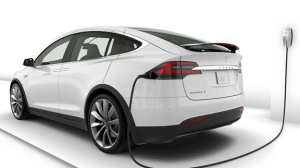
ADDIS ABABA – As Ethiopia is pushing for sustainable transportation, the development of efficient infrastructure and incentives remain crucial for the promotion of electric vehicles (EVs), experts and stakeholders in the area stated.
Addis Ababa University Environmental Engineering Department Lecturer and Renewable Energy Researcher Mintesnot Gizaw (Asst. Prof.) told the Ethiopian Press Agency (EPA) that spearheading amicable policies and strategies in the green economic sector have huge contributions for the nation’s holistic development.
Apart from promoting socio economic development, he emphasized that expanding zero emission vehicles helps mitigate carbon emissions, job creation, reduces fuel cost among many other virtues.
He has also recommended the proper manipulations of renewable energy sources such as hydro, wind, solar and geothermal, inclusive infrastructural development and off-grid electricity access to rural areas where there is no adequate electricity.
Urging the government and other pertinent stakeholders in the sector, the assistant professor suggested investing in the sector to provide efficient transport access, reduce carbon emissions and environmental pollution which in turn expedited technology transfer and decent job creation.

For his part, Ministry of Transport and Logistics Climate Change Senior Expert Yizengaw Yitayew for his part told the press that the government has given wider rooms for the sector by revising national transport policies and charging standards as priorities for the promotion of electric vehicles that would have huge importance to address health and environmental related crises.
To support the growth of the EV sector, the government, along with private investors, is working to provide infrastructure, incentives like excise tax exemption and VAT subsidies, and raising awareness. Lack of efficient infrastructure, land and charging gadgets are affecting the expansion of electric vehicles, he added.
Mentioning the main constraints on the development of EV such as infrastructure, land and charging gadgets, the expert highlighted that efforts are being made to facilitate the tax-free import of charging machines, land access, and licensing.
Currently, charging standards are being developed to ban substandard charging gadgets, he added.
On the other hand, National Oil Ethiopia PLC CEO and Oil Companies Association President Tadesse Tilahun advocated for the implementation of hydropower energy to bring about resilient electric mobility across the country.
Expressing the company’s readiness to install charging infrastructures, Tadesse stressed the need to enhance renewable energies both off-grid and on-grid systems and the involvement of private sector participation.
BY ASHENAFI ANIMUT
THE ETHIOPIAN HERALD FRIDAY 13 SEPTEMBER 2024





